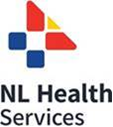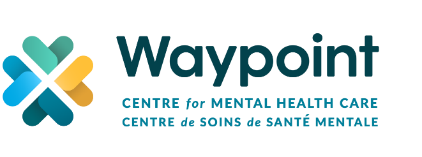
The Quality Mental Health Care Framework Implementation Toolkit provides guidance on the practical application of the dimensions of the Quality Mental Health Care Framework (QMHCF) in various health-care settings. Developed to support health-care providers, people with lived and living experience (PWLLE), administrators, health-care policy advisors, and decision makers in health-care organizations, the toolkit assists users to embed quality mental health care practices into their unique workplace environments.
Click on each dimension to learn more.
HealthCareCAN and the Mental Health Commission of Canada (MHCC) co-lead the Quality Mental Health Care Network (the Network). HealthCareCAN is the national voice of hospitals, health authorities, health research, and health-care organizations across Canada. HealthCareCAN fosters informed and continuous, results-oriented discovery and innovation across the continuum of health care.
The MHCC is a national not-for-profit organization. The MHCC works to improve the lives of people who experience mental health problems and illnesses (as well as their families and caregivers). The MHCC delivers research, programs, training, and tools that bring real change to people in their communities. The MHCC’s current mandate aims to deliver on priority areas identified in the national mental health strategy.

The Network was established in 2019, uniting health-sector leaders from across the country to help improve access to quality mental health care, support recovery-oriented practices, and promote the psychological health and safety of health-care workers. As part of the Network, HealthCareCAN led the development of the QMHCF in 2020. To help to disseminate the framework, HealthCareCAN and the MHCC created several knowledge translation products such as a policy brief, a peer-reviewed journal article, and webinars, and they co-presented at the Canadian Association for Health Services and Policy Research (CAHSPR) conference in May 2024.
The QMHCF has been revised with the support of the Network, and the updated version was released in early 2025. The need for a resource to facilitate the implementation of the revised QMHCF emerged from extensive consultations with PWLLE, health-care providers, administrators, and other key experts across Canada. The work to create this toolkit began in September 2024 and was led by HealthCareCAN. Through structured interviews, consultations, and an environmental scan of national and international frameworks, critical challenges were identified, including worsening mental health outcomes after the COVID-19 pandemic and persistent gaps in service delivery. With the increased demand for mental health care, access to timely and effective care remains a significant issue, with many services struggling to meet evolving needs.

This toolkit synthesizes key takeaways and resources from the engagement of PWLLE and other interested parties to support the revised QMHCF by providing practical guidance for implementing it. By identifying clear, actionable strategies, best practices, and case studies, this toolkit provides resources that will assist organizations to implement the QMHCF’s core dimensions and improve mental health service delivery in Canada.
Quality mental health care is built on principles that recognize the diverse and unique needs of individuals, emphasizing person-centred approaches that empower recovery and foster resilience. The QMHCF integrates these principles, aiming to address the needs of PWLLE and providers in various health-care settings.
As part of the 2025 update, the QMHCF was revised to better address current and future needs in mental health care. This process included:

Following discussions with PWLLE and health-care professionals, the QMHCF was revised to focus on a person-centred approach to the dimensions and definitions of quality mental health care. The revised framework promotes a clearer understanding and synthesis of the quality care dimensions and aims to better represent the vision of high-quality care for everyone.
This implementation toolkit was developed to assist with practical application of the QMHCF across diverse settings. The updates to the QMHCF will ensure that the QMHCF remains a relevant, evidence-informed tool for guiding high-quality mental health care in Canada.
Mental health care in Canada is at a critical juncture. Gaps remain in the way frameworks and guidelines are implemented across the health-care system. This toolkit is designed to address this challenge by translating high-level principles into actionable strategies, ensuring equitable, inclusive, and sustainable delivery of mental health care. It was also developed in light of other key national priorities, evolving needs, and systemic challenges:
Mental health is a pressing concern for Canadians, with one in five experiencing a mental health problem or illness annually. By age 40, one in two have had a mental illness.[2] In Ontario, after the onset of the COVID-19 pandemic, the demand for adult mental health services increased by 47 per cent between 2021 and 2022, and the demand for children and youth services grew by 104 per cent.[3] Across Canada, youth in particular showed high rates of anxiety, depression, and post-traumatic stress disorder, resulting in higher use of outpatient and emergency department services for mental health care.[4]
Many Canadians face barriers to accessing timely and effective care. Stigma, racism and discrimination, and cultural or ethnic identities and perceptions of mental health services present significant barriers to people seeking care. Rural and underserved regions may have limited availability of services.[5] Stigma, social isolation and loneliness, and ageism pose challenges for seniors, particularly residents of long-term care facilities.[6] Financial factors can compound these barriers: individuals may have unequal access to mental health care because of lack of insurance coverage, lack of access to publicly funded community mental health counselling, costs for out-of-pocket services, and other issues.[7]
Addressing mental health is critical to Canada’s broader public health goals as it is one of the most pronounced health inequities in Canada.
Disparities in access: Equity-deserving populations[8] often encounter systemic barriers to care, exacerbating health inequalities. These barriers may be due to socio-economic conditions, racism and discrimination, lack of support networks and community, stigma, and lack of appropriate care options.[9]
Inconsistent implementation: While frameworks for mental health care exist, there is a gap in translating them into actionable, practical strategies across diverse settings.
Increasing demand: As societal awareness of mental health grows, so does the strain on already overburdened systems.

Supporting practitioners and leaders: Health-care teams require guidance on integrating best practices, engaging PWLLE, and addressing workforce burnout.
Driving organizational change: Senior executives, system leaders, and decision makers need tools to align governance structures and resource allocation with quality care objectives.
Empowering individuals and families: PWLLE must play active roles in co-designing and sharing in the governance of care services and programs, from planning to implementation, while advocating for inclusive practices.

Only PWLLE can speak authentically about their experiences during their care journey and their perception of what represents quality mental health care. Often, engagement with PWLLE can be superficial, tokenistic, or unequal because of power dynamics and insufficient support. The participation of PWLLE in decision-making processes for programs, policies, or services, throughout all stages from planning to delivery and evaluation, is vital to ensuring that a person-centred approach is taken and that the programs, policies, and services meet the needs of PWLLE.
In this toolkit, we have included PWLLE and their role in the implementation guidance for each of the dimensions of the QMHCF and have provided testimonials and quotes from them. It is important to recognize that detailed planning is required to ensure PWLLE are meaningfully engaged throughout the process of developing and implementing a new program, policy, or service. In this section, we offer recommendations on four phases in the engagement of PWLLE in every project, policy initiative or program: planning, onboarding, supporting, and evaluating.

Recommendation 1: Consider why: What is the problem you are trying to solve and how will PWLLE expertise be included?
Recommendation 2: Consider how: What methods will you use to engage PWLLE in your project, policy, or program (e.g., surveys, committee engagement, co-design)?
Recommendation 3: Consider when: At what stage of the life cycle of a project or program will you engage with PWLLE? Do you have the necessary resources (e.g., honorarium) and have all partners been trained in PWLLE engagement best practices, harm reduction principles, cultural safety, and trauma-informed care principles?
Recommendation 4: Consider the level of engagement: Will PWLLE be informed (made aware of the project)? Will they be consulted (invited to provide feedback at some stage of the project’s life cycle)? Will they be involved (invited to provide ongoing advice and input that will be incorporated throughout the project’s life cycle)? Will they be collaborators (will they share in decision making)? Or will they be empowered (will they have full autonomy over the initiative)?
Recommendation 5: Consider who: Is there a particular expertise or experience that you would like to know more about? Are there any specific barriers and challenges PWLLE might face, and do you have supports in place to address these?
Recommendation 6: Consider creating an environment where PWLLE feel comfortable sharing their experiences. Avoid using stigmatizing language and use person-first language. When presenting topics, provide context and explanations to enhance understanding. Provide PWLLE with the necessary information and updates and be an active listener.
Recommendation 1: Engage with a diverse group of PWLLE to ensure a variety of perspectives and expertise.
Recommendation 2: Inform all PWLLE about their rights to privacy or confidentiality and ensure they feel safe and comfortable in sharing their expertise.
Recommendation 3: Partner with PWLLE to make sure that all of their accessibility requirements are being met, appropriate language is being used, and their preferences are being respected.
Recommendation 4: Ensure appropriate compensation: How often will you provide remuneration and in what form?
Recommendation 1: Be flexible and provide appropriate supports to PWLLE (travel requirements, frequency of communication, mode of communication, accessibility needs, etc.)
Recommendation 2: Provide clear guidance and all documentation to facilitate full participation and engagement.
Recommendation 3: Provide opportunities for questions and clarifications.
Recommendation 4: Ask how PWLLE would like to be recognized for their contributions.
Recommendation 1: Build an evaluation plan with PWLLE.
Recommendation 2: Determine with PWLLE the best ways to evaluate their involvement (surveys, structured interviews, informal check-ins, focus groups, etc.) and co-create these tools with them.
Recommendation 3: Discuss with PWLLE their experience and recommendations for future engagement.
Description: This document provides guidance for working with people with lived and living experience of substance use and their families and friends and is intended for individuals and organizations who partner with or wish to partner with such groups.
Description: Community-Engagement Governance is based on established principles of participatory democracy, self-determination, genuine partnership, and community-level decision making.
Description: This white paper defines governance shared decision making as a more broadly based approach that assumes management, constituents, experts, collaborative partners, and other stakeholders are involved in making governance decisions, in addition to the organization’s board. The paper proposes the best ways to partner with PWLLE under this new governance model.
Description: These guidelines from the BC Health Authorities promote peer engagement to improve the involvement of and uptake of peer voices in health service planning and policy development.
Description: This resource is a guide on how to best involve patients, families, and caregivers by using the principles of patient engagement.
Description: The International Journal of Integrated Care, publishing since 2000, documents the trends, developments, and newest findings in the research, policy, and practice of integrated care.
Description: These guidelines were compiled from a three-round modified virtual Delphi study of researchers, research engagement staff, and PWLLE including family members.
Description: The MHCC established two advisory councils, the Youth Council (2008) and the Hallway Group (2009), to ensure that the voices of PWLLE are embedded in the MHCC’s work. This document explains how the MHCC engaged with the PWLLE groups to develop an adapted version of the International Association for Public Participation (IAP2)’s Spectrum of Public Participation and reflect on how PWLLE are engaged at the MHCC.
Description: The Registered Nurses’ Association of Ontario is the organization for registered nurses, nurse practitioners, and nursing students in Ontario, and this toolkit provides guidelines on how to best engage PWLLE in planning, delivering, and evaluating health services to improve quality and safety.
Description: This is a systematic review of studies that used various design approaches to involve service users and PWLLE in innovation in mental health care.
Description: The Registered Nurses’ Association of Ontario is the organization for registered nurses, nurse practitioners, and nursing students in Ontario, and this toolkit provides guidelines on how to best engage PWLLE in planning, delivering, and evaluating health services to improve quality and safety.
Description: This is a systematic review of studies that used various design approaches to involve service users and PWLLE in innovation in mental health care.
Implementation science[10] is the study of methods to promote the adoption of evidence into practice. The goal is to identify barriers and facilitators and apply strategies to overcome the barriers and enhance the facilitators, to get research into real-world mental health care settings.
By utilizing implementation science, health-care systems can improve service delivery, optimize resource allocation, and enhance outcomes for PWLLE and providers. The framework ensures that quality mental health care is integrated and maintained over time, helping organizations build capacity and overcome implementation challenges.
This phase involves identifying participants and partners, defining with them their level of engagement, gathering insights, and understanding the current state of mental health services. It lays the groundwork for collaboration and highlights key challenges and opportunities.

In this phase, individuals work together to design an actionable plan for implementing quality mental health practices. This includes identifying resources, training needs, a communication plan, and key performance indicators to guide implementation efforts.

This phase focuses on the execution of the plan. It includes piloting interventions, refining processes on the basis of feedback, and ensuring that systems are in place to track progress and adjust the initiative as necessary.

The final phase ensures the long-term success of the initiative by embedding the changes into routine practice. It includes scaling up successful interventions, continuously monitoring outcomes, and ensuring sustainability through ongoing evaluation and adaptation.
Introducing a new practice, program, or policy requires careful planning, resources, and dedication. Investing time and effort into these implementation practices will help to ensure that the goal of delivering high-quality mental health care is achieved.
For each dimension of the revised QMHC, this toolkit includes the following components:
Implementation guidance: A list of key participants and their roles in implementing initiatives that address the dimension is provided. This list specifies who needs to be involved and how they should contribute to achieving the dimension’s goals.
Systems level: Resources and tools at the systems level focus on high-level strategies, frameworks, and policies that enable the large-scale integration of initiatives that address the dimension across health-care systems. These include best practice guidelines, policy frameworks, and national standards that provide a structured approach for health-care organizations, governmental bodies, and providers to implement systemic changes. Assessment and benchmarking tools help measure the effectiveness of mental health initiatives at a system-wide level, while standardized protocols ensure consistency in service delivery. Data tracking and reporting systems further support performance monitoring, enabling continuous improvement and evidence-based decision-making.
Community level: Resources and tools are also provided that offer examples of programs that bridge gaps between health-care services and individuals in the community, encouraging direct engagement with service users, family members, community leaders, and local organizations. These include community-led initiatives, culturally responsive frameworks, and peer support networks that enhance accessibility and inclusivity in mental health care. To support implementation, outreach and engagement toolkits provide structured approaches for involving community members, while self-help and educational materials equip individuals with strategies to manage their mental well-being. Mobile and digital health tools — such as mental health apps and online platforms — enhance accessibility by offering immediate, user-friendly support to individuals.
Case studies: Case studies provide real-world examples of how organizations, health-care providers, PWLLE, and communities have successfully implemented quality mental health care initiatives. They highlight challenges faced, strategies used, and outcomes achieved. By showcasing practical applications of the framework’s dimensions, case studies offer valuable insights and best practices that can be adapted to various settings.
Reflection questions: Reflection questions encourage critical thinking and discussion around the implementation of quality mental health care practices. They prompt users to consider how each dimension applies to their unique contexts, assess potential challenges and opportunities, and identify actionable steps for improvement. These questions are designed to facilitate meaningful engagement among health-care providers, administrators, and community members, fostering a culture of continuous learning and quality improvement.
Quality mental health care to me is accessible, recognizes the systemic inequities and barriers, and ensures my needs are met regardless of my socio-economic status including age, location, financial status, racial, ethnic, or cultural background, visible or non-visible disability, gender identity, or sexual orientation.
"People should be able to access [mental health care services] no matter where they are at"PWLLE consultation participant
PWLLE: Work with providers to co-design care approaches that remove barriers and address health-care disparities to ensure services are available regardless of socio-economic factors. (Please see section 1.4 for more information on how to meaningfully engage PWLLE.)
Providers: Deliver inclusive care, tailoring services to meet diverse needs.
Community organizations: Support outreach, provide culturally appropriate resources, and collaborate with health-care providers through joint service planning, cross-referrals, culturally tailored program delivery, and shared training opportunities.
Managers: Conduct equity audits, integrate goals into strategic plans, and oversee organizational changes.
Leaders and executives: Drive equity-focused initiatives, allocate resources, and embed equity in organizational priorities, structures, and processes.
Policy makers: Develop and implement policies that enhance accessibility, uphold anti-discriminatory practices, and integrate data-driven equity improvements into mental health care delivery. Ensure policies support systemic change by addressing structural barriers and provide inclusive, person-centred care.
Description: The AMHO’s Equity, Anti-Racism and Anti-Oppression Framework provides a comprehensive guide for improving access to mental health and addiction services across Ontario. It focuses on system-wide collaboration, evidence-based practices, and person-centred care to meet the diverse needs of individuals and communities. Importance: The framework aims to reduce barriers to care, promote equitable service delivery, and ensure continuity and integration across mental health and addiction services.
Description: Indigenous Health Commitments: Roadmap to Wellness outlines a framework to strengthen Alberta Health Services’ relationships with Indigenous communities and address health inequities. It focuses on cultural safety, reconciliation, and improving access to culturally appropriate care.
Description: The National Standard of Canada CSA Z2004:24 aims to enhance, strengthen, and expand support for the mental health and well-being of residents of LTC and AL facilities, including those without mental health symptoms or conditions and those with or at risk of developing them.
Description: The First Nations Mental Wellness Continuum Framework outlines a comprehensive, culturally grounded approach to supporting mental wellness in First Nations communities. It integrates traditional knowledge, cultural practices, and community-driven solutions with clinical mental health services.
Description: This report by the Mental Health Commission of Canada integrates key concepts into a comprehensive framework to guide mental health policy and programming.
Description: The British Columbia Cultural Safety and Humility Standard, developed by the Health Standards Organization (HSO), establishes guidelines to improve health-care services by embedding cultural safety and humility into organizational policies and practices. It emphasizes the need for health-care providers to recognize and address systemic barriers faced by Indigenous communities.
Description: The CFNU’s Equity and Inclusion Toolkit provides guidance for health-care organizations and professionals to advance equity, diversity, and inclusion in the workplace. It includes practical tools such as checklists and workshop suggestions (pp. 15-18) to support the implementation of equitable policies and practices.
Description: This web page lists practical resources for integrating equity-focused practices into mental health initiatives on post-secondary campuses. It offers tools and strategies to address systemic barriers and promote inclusive mental health supports and a more equitable campus community. Post-secondary institutions can explore a variety of resources and tools designed to support their equity-focused mental health efforts.
Description: The National Standard for Mental Health and Well-Being for Post-Secondary Students, developed by the MHCC, provides a systematic framework to help institutions support and promote student mental health. It outlines policies, practices, and resources for a supportive learning environment and enhancing student well-being.
Description: The Feel Well program in Yukon offers resources and tools to support mental health and well-being for Yukoners. It focuses on promoting mental wellness through accessible, community-based initiatives and self-help strategies.
Description: Noojimo Health offers culturally grounded mental health services tailored to Indigenous communities, combining traditional healing practices with modern therapeutic approaches to support holistic well-being.

Background: Navigating the health-care system while managing mental illness can feel overwhelming, much like trying to find a path through an overgrown garden riddled with obstacles. For years, Anita faced a fragmented and siloed system that offered few viable treatment options, cancelled programs, and frequently denied care because of the complexity of her condition. This lack of accessible, coordinated, and person-centred care led to a continuous cycle of crisis, where she was often seen merely as a diagnosis rather than as a whole person. Amid these challenges, there were moments of hope — certain health-care practitioners recognized Anita’s potential and advocated for her recovery when she could not see it herself. However, it took years of self-exploration and persistence to break out of the cycle and discover a more holistic approach to mental wellness.
Journey toward recovery and engagement: The turning point came when Anita attended a Wellness Recovery Action Plan (WRAP) group, an experience that expanded her understanding of wellness beyond just medical treatment. The group provided an opportunity for self-reflection and connection with others who had similar experiences. Through peer support and collective wisdom, she gained a renewed sense of agency in her mental health journey. This shift in perspective empowered Anita to take an active role in shaping her own care. Over time, she transitioned from being a patient struggling within the system to becoming a peer mentor, patient partner, and lived experience strategic advisor. Her journey led her to work closely with marginalized populations, advocating for trauma-informed and recovery-oriented care.
Impact and significance
The impact of this transformation extends far beyond Anita’s personal recovery. Drawing from her lived experience, she has:
Key insights for health-care providers and leaders
Background: In 2021, Nova Scotia became the first Canadian province to commit to universal mental health and addictions care for all residents. This commitment included appointing a dedicated minister to oversee the implementation of this universal program and the initiation of new programs to enhance mental health care delivery.
Implementation: Over the past two years, the provincial government has invested $65 million in mental health and substance use health services, and $4.5 million has been earmarked for funding of the Dalhousie Centre for Psychological Health, to support the initial three years.
Launched in September 2023, this Halifax-based clinic provides a wide range of evidence-based psychological services to low-income clients facing barriers to access and important training opportunities for 30 - 40 clinical psychology PhD students annually. Eight registered psychologists, including Co-directors Dr. Shannon Johnson and Dr. Alissa Pencer, supervise the students who work directly with clients. These students find the program provides them with invaluable experience to inform their future practice as they have previously had few opportunities to work with clients from marginalized and diverse populations during other practicum placements. Presently, the centre serves low-income clients, particularly Nova Scotians who face barriers to accessing mental health services and partners. The centre partners with specific community organizations who refer individuals most in need of their services. In the first year, the clinic provided intervention and assessment services to more than 350 Nova Scotians across 1,100 sessions. "Mental health and addictions care is health-care. The care you get should be based on the care you need, not if you can pay," said Minister Brian Comer from the office of Addictions and Mental Health.
Impact & Significance: This initiative aligns with Nova Scotia's strategic goals of enhancing mental health and addictions care accessibility and integrating services into the publicly funded health-care system. By investing in community-based clinics and targeted pilot projects, the province aims to reduce barriers to care, decrease wait times for assessments, and improve overall mental health outcomes for its residents.
Learn more: Dal News
Background: It was recognized that the people of Newfoundland and Labrador needed access to rapid and accessible mental health and substance use counselling services. To address this need, the Doorways program was developed to offer immediate support without the requirement of appointments or referrals. This service originated in the former Eastern Health regional health authority in 2017 and was widely implemented across the province in subsequent years. The service continues to be offered throughout all zones of Newfoundland and Labrador Health Services in multiple locations across the province.
Implementation: The Doorways program provides rapid-access single-session counselling services across various locations to youths and adults, ensuring flexibility and accessibility for clients.
Key features include:
If further counselling is required beyond the initial session, staff collaborate with clients to connect them to additional services and supports. In some locations, the program has been tailored to include expanded services such as case management and substance use health support. The counselling in the Doorways program is provided by psychiatric nurses and social workers, and there is some availability for sessions in the evenings.
Impact and significance: The Doorways program provides accessible mental health and substance use care across Newfoundland and Labrador. In 2024, there were 17,831 people seen at Doorways across the province. By eliminating barriers such as wait times and referral requirements, Doorways ensures that individuals can receive timely assistance tailored to their needs. This approach not only addresses immediate concerns but also facilitates connections to ongoing support services, enhancing overall mental health care in the community.

Quality mental health care to me is coordinated, collaborative, seamless, includes my support system, and available across my care journey.
"There’s a disconnect when accessing services — you’re just receiving care without knowing the plan. Co-design, transparency, and collaboration are key to truly person-centred care."PWLLE consultation participant
PWLLE: Collaborate with providers to co-design and improve care coordination, ensuring services are seamless, inclusive of support systems, and available throughout the care journey. (Please see section 1.4 for more information on how to meaningfully engage PWLLE.)
Administrators: Streamline referral pathways, monitor wait times, and implement technology solutions for care coordination.
Providers: Facilitate continuity of care, provide integrated services, and share information to reduce gaps in care, improve communication, and enhance patient/client outcomes.
Policy makers: Develop and implement policies for cross-sector collaboration, ensure seamless service transitions, and eliminate systemic barriers to integrated care. Support digital health innovations, data-sharing frameworks, and person-centred approaches that enhance coordination and continuity of care.
Information technology (IT) specialists: Develop and maintain digital health platforms to enhance care access and streamline communication between providers and people.
Care coordinators: Act as liaisons between people, providers, and support services to ensure seamless transitions of care.
Community organizations: Provide localized support, culturally sensitive resources, and partnerships to bridge gaps in care.
Quality improvement teams: Monitor outcomes, identify bottlenecks in service delivery, and implement evidence-based solutions.
Educators and trainers: Equip providers with the knowledge and skills needed for effective care coordination and person -centred approaches.
Advocacy groups: Advocate for services to meet the needs of individuals or groups and ensure marginalized voices are included in care planning and decision making
Description: AccessMHA provides a centralized system in Eastern Ontario for individuals to access mental health and addiction services, streamlining the process of finding the right care and support in the region.
Description: The Coordinated Care Management for Patients with Mental Health and/or Addictions Conditions resource from Health Quality Ontario provides a framework to support people with mental health and addiction conditions by enhancing communication, coordination, and integration across health-care providers.
Description: Your Health: A Plan for Connected and Convenient Care outlines Ontario's strategy to modernize health care by enhancing integration, expanding digital health solutions, and ensuring timely, person-centred care across the province.
Description: Foundry BC provides integrated health and wellness services for young people age 12-24, offering mental health care, substance use services, primary care, peer support, and social services under one roof. The initiative aims to create accessible, youth-friendly spaces across British Columbia where young people can receive comprehensive, coordinated care.
Background: In 2021, Island Health leaders identified a growing trend of young adults (age 17-26) seeking acute mental health services at Royal Jubilee Hospital in Victoria, British Columbia. Patients and their families emphasized the need for a dedicated, safe, and age-specific inpatient space. While other provinces had developed specialized units for young adults, British Columbia lacked such a model. This gap in service delivery underscored the urgent need for an innovative approach to acute mental health care for young adults.
Implementation
To develop the young adult inpatient unit, the hospital’s mental health and substance use department engaged a broad spectrum of interested parties, including:
Key implementation challenges included:
A phased approach was adopted, beginning with a gradual transition in November 2023, culminating in the unit’s full operational launch in April 2024.
Impact and significance: The Young Adult Inpatient Unit at Royal Jubilee Hospital is the first specialized, acute care mental health unit for young adults in British Columbia. The unit provides individualized, and group programming designed to support psychoeducation and skill-building during acute mental health episodes.
Key outcomes:
This initiative demonstrates a transformative approach to mental health care by filling a critical service gap and offering a replicable model for other jurisdictions seeking to implement specialized mental health services for young adults. This project was accepted as a Storyboard presentation at Health Quality British Columbia’s Quality Forum 2025.
Background: Women’s College Hospital (WCH) in Toronto is a leading academic health institution in Canada, recognized for its innovation in ambulatory care, virtual health services, and digital health solutions. Committed to equity and accessibility, WCH specializes in mental health, chronic disease management, and rehabilitation, making it well positioned to lead the transition to virtual care. In response to the COVID-19 pandemic, WCH implemented virtual group health interventions to ensure continuity of care, creating a sustainable and secure system for delivering virtual sessions, particularly for mental health, chronic pain management, and cardiac rehabilitation.
Implementation: The hospital implemented group video visits, through integration of Zoom for Healthcare into the electronic medical record, EPIC, for scheduling and documentation, over a six-week period beginning in April 2020. A phased rollout ensured a smooth transition:
Within six months, 542 virtual group sessions were conducted with 767 participants. A team of academic researchers evaluated the approach for impact, quality, and outcomes. Results have shown positive feedback from both providers and those seeking care.
Impact and significance: By transitioning to virtual group interventions, the hospital ensured uninterrupted care, reduced barriers to access, and established a scalable model for future health-care delivery. This approach improved client engagement and positioned the hospital to adapt to evolving health-care needs while maintaining high-quality service.
Background: Waypoint Centre for Mental Health Care, located in Ontario, identified a need for continued support for individuals transitioning from hospital-based mental health and addiction care to community living. To address this need, Waypoint developed the Waypoint At Home program, aiming to provide specialized care for patients who no longer require hospitalization but still need assistance to safely reintegrate into their homes or community settings.
Implementation: Launched as the first program of its kind in Ontario, Waypoint At Home offers eligible patients between eight and 16 weeks of in-home care following their discharge from the hospital. Key features of the program include:
Impact and significance: The Waypoint At Home program exemplifies innovative health-care delivery by extending specialized mental health and addiction services into patients’ homes. This approach not only facilitates a smoother transition from hospital to community life but also aims to reduce unnecessary emergency department visits and readmissions. By receiving care in a familiar environment, patients may experience greater comfort and engagement in their recovery process, ultimately leading to improved outcomes and greater satisfaction with the care received.

Quality mental health care to me is the right care, at the right time, by the right team, in the right place.
"We need to look at mental health holistically and consider the social determinants of health to understand what really matters."PWLLE consultation participant
PWLLE: Work with providers to co-design care strategies that ensure person-centred, appropriate care. (Please see section 1.4 for more information on how to meaningfully engage PWLLE.)
Providers: Use shared decision-making tools and deliver tailored care based on the preferences and values of the person or people receiving the care.
Administrators: Monitor alignment with care standards and ensure that resources support personalized care.
Policy makers: Develop and enforce policies within hospitals, health authorities, post-secondary institutions, and clinics that prioritize individualized, timely, and team-based care. Ensure that frameworks support personalized and evidence-based mental health service delivery.
Quality improvement teams: Use feedback from the person or people receiving care to refine care processes and outcomes.
Educators and trainers: Equip providers with tools and training for personalized care approaches.
Data analysts: Use appropriate data collection methods that support program evaluation and care improvements. Bridge research and practice by integrating the outcomes reported by the person or people receiving care into clinical workflows.
Community organizations: Provide culturally appropriate resources and collaborate to meet individual needs.
Advocacy groups: Empower individuals to advocate for care that reflects their unique circumstances and values.
Description: LOCUS is a tool designed to assess service needs and determine the appropriate level of care for individuals with behavioural health conditions.
Description: Talking About Suicide is a free online training that equips health-care providers with tools to recognize suicide risk and engage in open, supportive conversations. The course is accredited for continuing education credits and can be completed in as little as three hours.
Description: PREMs and PROMs capture feedback on health-care experiences and outcomes.
Description: This framework is designed to improve patient safety and quality in health-care delivery through collaboration, accountability, and continuous learning.
Description: Stepped Care 2.0 is an adaptive, client-centred model of mental health service delivery designed to improve accessibility and effectiveness. It offers a continuum of care where individuals can receive the appropriate level of support on the basis of their needs, ensuring flexible and timely mental health interventions.
Description: The Community Counselling Program (CCP) offers mental health and wellness services across the Northwest Territories, providing free and confidential support for individuals, families, and communities. Services include mental health counselling, crisis support, and referrals to specialized care, ensuring culturally safe and accessible care, particularly for Indigenous and remote communities.

Background: Mental health was rarely discussed in Alisha’s traditional South Asian, immigrant-oriented household when she was growing up. Understanding the immense sacrifices her parents had made, she was reluctant to share her struggles, fearing that she would burden them further. However, as academic and social pressures intensified, it became increasingly difficult to hide her anxiety and exhaustion. This marked a turning point in the family dynamic, initiating long and often-confusing conversations about mental health — filled with uncertainty about what was happening, why it was happening, and how to move forward. Without prior experience navigating the mental health care system, Alisha and her family faced an immediate challenge: Where to begin? Her journey started with walk-in counselling, which led to a referral to a youth mental health program. However, after six months on a wait-list, Alisha received a letter — not to confirm her place, but simply to ask if she still wanted to remain on the list. Frustrated with the delay, her family turned to private therapy, but the financial burden made it difficult to continue. Even when she was able to access therapy, she struggled to connect with her therapist. She worried that they would not fully understand the cultural and academic pressures she faced. Filtering her words out of fear of judgment, she found herself holding back, realizing how much context and relationship matter in mental health care.
Another major challenge was the need to retell her story multiple times. Every transition between services required her to explain her experiences repeatedly, until her story became a rehearsed speech that left her feeling exhausted. Trust in the system also became a key concern. Before fully engaging in care, Alisha’s family needed reassurance that her treatment would be culturally safe, relevant, and confidential — that her struggles would not be dismissed and that their values would be respected. Lastly, she observed a lack of early intervention in schools. She recalled feeling unsupported by the education system, particularly during the pandemic, when schools shifted focus away from student mental health. Without a trusted point of contact at school, she found it increasingly difficult to endure overwhelming school days.
Challenges and systemic barriers
Impact and significance: Despite these challenges, Alisha and her family have become more open minded about mental health. Ongoing conversations have helped them understand the importance of self-compassion, help seeking, and culturally responsive care. This experience also inspired Alisha to become a mental health advocate. Recognizing that her struggles reflected broader systemic issues, she became passionate about pushing for meaningful change in youth mental health services.
Key takeaways from Alisha’s experience include:
Key recommendations for health-care providers and leaders:
Background: An early adopter of the Quality Mental Health Care Framework, the Ontario Personal Support Workers Association (OPSWA) has established the Mental Health Community Support (MHCS) division to provide dedicated mental health support to individuals with autism spectrum disorder. A key figure in this initiative is Ketcher Stolp, who serves as the autism advocate for both MHCS and OPSWA. Diagnosed with autism at the age of nine, Ketcher has committed himself to supporting individuals on the spectrum. His mission is to raise awareness and provide aid to others within the autism community.
Source: https://ontariopswassociation.com/wp-content/uploads/2025/01/Ketcher-Stolp2025.webp
Implementation: Janet Murphy, a child and youth worker in intensive behaviour support, supports the program. With Ketcher's advocacy, MHCS has organized various events and workshops aimed at supporting the autism community. One notable event was the Autism Allies Game Fest held on December 1, 2024, at Hespeler Memorial Arena in Cambridge. This event provided a space for individuals with autism to engage in gaming activities, fostering social interaction and community building. MHCS offers free support groups and workshops on topics such as self-regulation skills and bullying awareness. These programs are designed to equip participants with practical tools and knowledge to navigate daily challenges. They also offer an OPSWA autism training course for personal support workers looking to expand their knowledge and skills in supporting individuals with autism spectrum disorder.
Impact and significance: The initiatives led by Ketcher Stolp and MHCS have had a meaningful impact on the autism community in Ontario. By providing dedicated spaces and resources, they have created a sense of belonging and support among individuals with autism. The events and workshops not only offer practical assistance but also raise awareness about autism, contributing to a more inclusive society. Learn more: MHCS, Ketcher Stolp

Background: Baycrest is an academic health sciences centre providing a continuum of care for older adults, including independent living, assisted living, long-term care, and a post-acute hospital specializing in the care of older adults all on one campus. The centre provides care to approximately 1,200 people daily through various programs. Located in Toronto, Ontario, Baycrest is a global leader in aging and brain health, offering a comprehensive range of services tailored to the mental health needs of seniors. Recognizing the unique challenges faced by older adults, Baycrest has developed specialized programs to address conditions such as depression, anxiety, and cognitive impairments.
Source: https://www.baycrest.org/
Implementation: Baycrest’s Centre for Mental Health provides a multi-faceted approach to geriatric mental health care through the following key programs:
Impact and significance: By offering a continuum of care that spans outpatient, inpatient, and community-based services, Baycrest ensures that seniors with complex mental health needs receive timely, appropriate, and accessible mental health care. This integrated approach not only enhances the quality of life for older adults but also supports caregivers and families, contributing to the overall well-being of the community.

Quality mental health care to me is judgement-free, supportive, and safe while respecting my identity, experiences, and preferences.
"Stigma focuses on mental wellness, not mental illness, creating a huge gap. There’s no space for those with mental illness, which is discouraging." PWLLE consultation participant
PWLLE: Collaborate with providers to co-design stigma-free and inclusive care that is judgement-free, supportive, and respectful of individual identities, experiences, and preferences. (Please see section 1.4 for more information on how to meaningfully engage PWLLE.)
Providers: Engage PWLLE in shared decision making by understanding their experiences, challenges, and expectations. Work collaboratively to tailor care plans that address barriers to access and reflect individual needs, while ensuring clear and open communication about care options.
Administrators: Develop policies and procedures to support person-centred practices and monitor satisfaction through feedback mechanisms such as surveys, focus groups, and direct engagement with PWLLE to identify areas for improvement.
Policy makers: Ensure policies within hospitals, health authorities, post-secondary institutions, and clinics promote stigma-free, inclusive, and person-centred care. Allocate funding to support anti-stigma initiatives and integrate cultural humility and trauma-informed practices into care.
Care coordinators: Act as advocates for individuals receiving care by actively listening to their concerns, facilitating communication with providers, and ensuring their needs are addressed through personalized care planning and system navigation. Advocate for PWLLE by identifying barriers to access, supporting care transitions, and connecting them with appropriate resources and services.
Educators and trainers: Provide health-care professionals, health leaders, and administrators with structured education and training in empathy, active listening, and cultural competence. Include a strong focus on recognizing and addressing stigma, particularly structural stigma within the health-care system, through workshops, simulations, case studies, and experiential learning opportunities.
Quality improvement teams: Monitor feedback and outcomes to continuously refine person-centred care practices.
Advocacy groups: Increase public awareness about the negative impact of stigma on people with mental health and/or substance use problems and illnesses. Educate people about the harmful effects of stigma in health-care services. Advocate for policy changes and reforms to improve access and quality in the health-care system.
Leadership teams: Champion inclusivity by allocating resources to mental health-related care and initiatives. Set organizational priorities that promote equitable access, stigma-free environments, and the integration of person-centred and culturally responsive mental health services.
Description: This framework highlights the importance of moving away from an illness model to describe substance use.
Description: This report highlights stigma as a barrier to equitable health care, detailing its impacts on marginalized groups and calling for systemic changes to advance inclusivity and equity in health systems.
Description: This report presents a framework for assessing and documenting structural stigma in health-care settings, particularly for individuals with mental health and substance use issues. It synthesizes findings from existing literature and outlines key assessment domains, methodological considerations, and data sources.
Description: This website provides an overview of structural stigma in health care and tips for implementing new tools to assess its scope and severity. Featured resources include new measurement scales designed to measure stigma from the perspective of service users. Also included are case studies and helpful guidance for health-care organizations looking to address structural stigma experienced by individuals with mental health and/or substance use problems and illnesses when seeking care.
Description: The CAPE tool is a checklist-style assessment tool for mental health service providers. It provides structured prompts and actionable recommendations to evaluate and enhance cultural safety, accessibility, participation, and engagement within community mental health and substance use services.
Description: Fondation Jeunes en Tête (Youth In Mind Foundation) is a Quebec-based organization dedicated to promoting youth mental health by providing educational resources, awareness programs, and direct support to young people aged 11 to 18. Through workshops, partnerships, and online tools, the foundation equips youth with strategies to prevent psychological distress and encourages open conversations about mental health.
Description: The Hi-F.I.V.E. Movement, led by Healthy Minds | Healthy Campuses, is a stigma-reduction initiative aimed at promoting supportive campus environments where individuals experiencing mental health challenges feel valued, included, and free from discrimination. The movement promotes education, awareness, and peer engagement to challenge stigma and create safe spaces for open conversations about mental health.
Description: This comprehensive, free resource provides health-care leaders, providers, and individuals with practical strategies and guidance to reduce structural stigma related to mental health and substance use within their organizations. It offers actionable steps to create more inclusive, person-centred health-care environments.
Description: This free, bilingual (FR/EN) online course, created in partnership with the MHCC, equips health-care leaders at all levels with the knowledge and skills to recognize, address, and reduce structural stigma within health-care organizations. This training focuses on encouraging inclusive, equitable care environments for patients and staff.

Background: During a mental health crisis, a caregiver’s husband was admitted to a psychiatric facility voluntarily but was subsequently certified under their province’s mental health act upon admission. Without prior discussion, a social worker contacted protective services regarding the safety of their young daughter. This led to intervention by child protective services and the RCMP, creating significant emotional distress for the family and a fundamental distrust in the health-care system. The caregiver felt excluded from the decision-making process, despite being a crucial support for their husband. When concerns were raised with the care team, they were informed that the social worker acted within their rights, but there was no acknowledgment of the family’s rights or the emotional and legal impact this decision had on them.
Breakdown in communication and trust: This experience exposed gaps in communication, stigma, and challenges with family involvement in mental health care. The lack of transparency and failure to engage the caregiver in discussions before involving protective services created a sense of powerlessness and distrust in a system meant to provide support. Instead of fostering a collaborative approach, the system’s response reinforced harmful stereotypes about individuals with mental illness and their families, particularly assumptions about their parenting ability. This experience highlighted how stigma within the mental health system can lead to unnecessary interventions and further marginalization of families who are already navigating crisis situations.
Impact and significance: Rather than receiving support, the family was left feeling criminalized and judged. This experience reinforced systemic barriers, making it less likely that they will seek help in the future because of fear of legal repercussions. The caregiver identified key areas requiring urgent change:
Key recommendations for health-care providers and leaders
Background: In response to the 2020 In Plain Sight report, which highlighted systemic Indigenous-specific racism in British Columbia’s health-care system, BC Mental Health and Substance Use Services (BCMHSUS) recognized the need to enhance Indigenous cultural safety. As part of their Indigenous Cultural Safety Action Plan, BCMHSUS appointed Cassie Michell as the Indigenous Patient Experience and Partnerships Lead with the overarching goal of bringing Indigenous voices to the forefront of conversations, especially around mental health and substance use.
Source: https://www.bcmhsus.ca/
Implementation: Cassie Michell, a member of Kanaka Bar from the Nlaka'pamux Nation and a Licensed Practical Nurse with over 12 years of experience, assumed the role to amplify Indigenous perspectives within BCMHSUS. Cassie will be refining the Indigenous Cultural Safety Action Plan and will work with leaders as they implement the recommendations. This plan was created in collaboration and partnership with the Provincial Health Services Authority Indigenous Health and has been endorsed by the BCMHSUS executive leadership team with a commitment to advance the recommendations throughout the organization. It identifies priority initiatives such as capacity development, education and awareness, hiring goals, and meaningful engagement with Indigenous People.
Impact and significance: The appointment of an Indigenous Patient Experience and Partnerships Lead signifies BCMHSUS’s dedication to addressing systemic racism and promoting culturally safe health care. By elevating Indigenous leadership, the organization aims to build trust with Indigenous communities, improve patient experiences, and promote an inclusive environment that respects and integrates Indigenous perspectives in mental health and substance use services. "BCMHSUS recognized the need to create Indigenous leadership positions that will enable change at [a] transformative level of the organization," said Cassie Michell.

Background: MyOWL was founded by Dr. Mark Sinyor, a psychiatrist at Sunnybrook Health Sciences Centre and an associate scientist at the Sunnybrook Research Institute. Dr. Sinyor’s lab is focused on suicide prevention with an emphasis on improving the mental health literacy and life skills of youth. Working with psychologist Dr. Paula Conforti, who is experienced in assisting children and youth with mental health challenges through school boards, the project enhances youth mental health by integrating cognitive behavioural therapy (CBT) principles into literature-based learning. "We chose middle schoolers because this is an age group where you start to see a rise in depression, anxiety and youth who die by suicide," Dr. Conforti explained. She expects that their initiative will improve the well-being of students and their scores on anxiety and depression scales. "We are anticipating that our intervention … will have an overall effect on decreasing suicidal ideations and attempts," she noted. Dr. Sinyor said that "our hope is to help young people acquire the skills they need to thrive and mange distress through a beloved narrative and characters that they relate to." Inspired by Harry Potter and the Prisoner of Azkaban, the initiative equips young readers with practical coping skills.
Implementation: Dr. Sinyor conceived MyOWL while reading Harry Potter and the Prisoner of Azkaban with his child, recognizing its embedded CBT techniques for managing depression. This inspired a curriculum to teach CBT skills through literature in schools. Implementation included the following steps:
Impact and significance: MyOWL integrates mental health education into children’s literature, using Harry Potter to teach CBT skills, fostering resilience and coping strategies. Its reach continues to grow through digital expansion. More information can be found in the results of a randomized controlled trial among grade 7-8 youth conducted in 2021.
Learn more: MyOWL About Us
Quality mental health care to me is care is person-centered, in recognizing my unique health journey and supports me in leading the recovery or life that I desire
PWLLE: Collaborate with families, caregivers, and providers to co-design recovery-oriented care is person-centered, in recognizing my unique health journey and supports me in leading the recovery or life that I desire. (Please see section 1.4 for more information on how to meaningfully engage PWLLE.)
Health-care providers: Implement evidence-based recovery approaches, while addressing the needs of the client for all care needs including physical, psychological, and substance use, ensuring person-centred and strength-based care.
Administrators: Develop policies, allocate resources, and integrate recovery-focused care into organizational frameworks.
IT specialists: Support virtual and remote recovery interventions through technology-enabled solutions.
Policy makers: Establish policies within hospitals, health authorities, post-secondary institutions, and clinics that embed recovery-oriented, evidence-based mental health practices. Ensure that system-wide adoption supports individualized recovery goals and long-term well-being.
Quality improvement teams: Evaluate and refine recovery-based interventions using data-driven insights and individual feedback.
Educators: Train health-care providers in recovery-oriented approaches and evidence-based mental health care that promotes and encourages the values and beliefs of the patient or client.
Community organizations: Provide accessible, culturally responsive recovery services and collaborate with mental health care providers.
Advocacy groups: Promote and support recovery-oriented initiatives that amplify the voices of PWLLE and drive policy improvements.
Description: This document outlines core competencies for prescribers to enhance their ability to provide person-centred, evidence-based care for individuals with substance use health concerns. It includes guidance on harm reduction, stigma-free care, and interdisciplinary collaboration to improve service users’ outcomes.
Description: The Recovery-Oriented Practice: An Implementation Toolkit developed by the MHCC provides practical strategies for integrating evidence-based recovery-oriented care. It includes case studies, implementation frameworks, and best practices to support organizations in offering person-centred, strengths-based mental health services.
Description: CAPA is a clinical framework that emphasizes collaboration and the active participation of clients in mental health services. The tools provide guidance for implementing and evaluating CAPA.
Description: This quality standard provides evidence-based guidelines for caring for adults with schizophrenia in community settings, emphasizing continuity of care and the integration of mental and physical health services.
Background: The University Health Network (UHN), Canada's largest hospital and research system, identified a critical link between housing stability and health outcomes. Recognizing that individuals experiencing homelessness often face significant health challenges and are frequent users of emergency services, UHN launched the Social Medicine Housing Initiative to provide integrated housing and health-care solutions.
Implementation: In partnership with the City of Toronto, the United Way of Greater Toronto, and Fred Victor, a non-profit housing organization, UHN developed a four-storey modular building at 90 Dunn Avenue, known as Dunn House. This facility offers 51 accessible and affordable housing units designed for UHN’s clients with the complex medical and social needs who are unhoused. The first 51 occupants have been chosen from a list of unhoused individuals who frequently use UHN services and were willing to move to Dunn House.
Source: https://www.westnh.org/
Key features of the initiative include:
The selection process for residents prioritizes individuals on the basis of their medical and social needs, with a focus on supporting women, Indigenous peoples, and people with disabilities exiting homelessness.
Impact and significance: UHN’s Social Medicine Housing Initiative represents a pioneering approach to health care by addressing the social determinants of health through stable housing. By providing permanent, supportive housing integrated with health-care services, the initiative aims to improve health outcomes, enhance quality of life, and reduce health-care system burdens for some of the most vulnerable populations. This model serves as a potential blueprint for future collaborations between health-care institutions and community organizations to tackle homelessness and associated health disparities. "The hope is that this can provide somewhat of a playbook for other jurisdictions or other partnerships between every level of government, between hospital and community, to try to advance concrete solutions for people," said Dr. Andrew Boozary the executive director of the Gattuso Centre for Social Medicine at UHN.
Learn more: CBC
Quality mental health care to me is care that recognizes and understands the impact of trauma and ensures I feel safe and supported to exercise my own power in my care.
PWLLE: Collaborate with providers to co-design trauma-informed care that prioritizes safety, trust, and empowerment while recognizing the impact of trauma. (Please see section 1.4 for more information on how to meaningfully engage PWLLE.)
Educators: Train health-care providers and organizations in trauma-informed principles, including recognizing trauma responses, promoting psychological safety, and applying trauma-sensitive communication.
Health-care providers: Integrate trauma-informed practices into daily care by prioritizing person-centred approaches, minimizing re-traumatization, and creating safe, supportive environments.
Organizational leaders: Integrate trauma-informed practices into organizational policies and practices.
Administrators: Ensure trauma-informed care principles are consistently applied in service delivery, staff training, and operational frameworks. Establish mechanisms to measure effectiveness and promote continuous improvement.
Human resources teams: Support a trauma-sensitive workplace by incorporating trauma-informed principles into staff well-being initiatives, training, and leadership development.
Policy makers: Advocate for and implement policies within hospitals, health authorities, post-secondary institutions, and clinics that embed trauma-informed care principles across systems. Ensure policies support safe, trust-based, and empowering mental health services.
Community leaders: Promote trauma awareness and resilience-building within communities by supporting education, peer-led initiatives, and culturally responsive outreach efforts.
Description: This initiative provides training, tools, and strategies to implement trauma-informed care in health-care settings, focusing on creating safe and supportive environments.
Description: These resources guide health-care providers in implementing trauma-informed care principles, with a focus on creating safe, supportive environments for people with lived trauma experiences.
Description: CTRI offers workshops, training, and resources to equip professionals and organizations with practical tools for applying trauma-informed practices across various sectors, including health care.
Description: This resource provides tools and activities to educate health-care providers on trauma-informed care, focusing on enhancing knowledge, skills, and attitudes to deliver compassionate, trauma-sensitive services.
Description: The Jean Tweed Centre provides trauma-informed services for women and their families experiencing substance use, mental health challenges, gambling concerns, and trauma. Their programs incorporate a gender-responsive approach, offering counselling, group support, and specialized services to address the complex needs of women affected by trauma.
Description: Klinic Community Health offers trauma-informed training programs designed to help health-care professionals and service providers understand the impacts of trauma and integrate trauma-informed principles into their practice. The training covers key topics such as recognizing trauma responses, cultivating safety, and promoting resilience in health-care settings.
Background: Yukon Hospitals, a network of acute care facilities serving Whitehorse, Dawson City, and Watson Lake, is enhancing its commitment to mental health care through the development of a new Mental Wellness Unit (MWU) at Whitehorse General Hospital. This initiative responds to the increasing demand for accessible, culturally safe mental health services in the territory.
Source: https://yukonhospitals.ca/sites/default/files/styles/content_fit_featured_content/public/2021-12/Paediatric%20unit.jpg?itok=f4ABwf9_
Key features of the MWU include:
Impact and significance: This initiative aligns with Yukon Hospitals’ strategic goals of truth and reconciliation, Indigenization, and decolonization by embedding culturally safe mental health care practices. By expanding services and integrating Indigenous healing approaches, the new unit is expected to improve access, enhance patient outcomes, and strengthen the overall mental health care system across Yukon.
Learn More: Yukon Hospitals news
Background: The Columbia-Suicide Severity Rating Scale (C-SSRS) is a screening tool designed to assess suicidal ideation and behaviour through a series of straightforward, plain-language questions. Its primary aim is to identify individuals at risk for suicide, determine the severity and immediacy of that risk, and guide appropriate interventions. The scale is versatile and can be administered by various individuals, including health-care professionals, educators, and first responders.
Implementation: The C-SSRS has been widely adopted across multiple settings because of its simplicity and effectiveness.
Impact and significance: The C-SSRS standardizes suicide risk assessment, enabling early identification, effective resource allocation, and broad accessibility across health-care, education, and emergency services. Its structured approach enhances suicide prevention efforts, ensuring timely intervention and improved outcomes.
Quality mental health care to me is care that uses scientific, experiential, pragmatic, and/or cultural knowledge and is evaluated over time
PWLLE: Collaborate with policy makers to co-design, assess, and refine mental health care using scientific, experiential, pragmatic, and cultural knowledge to ensure services evolve with diverse needs. (Please see section 1.4 for more information on how to meaningfully engage PWLLE.)
Educators: Train providers and organizations on integrating scientific research, experiential knowledge, pragmatic knowledge, and cultural considerations into mental health practice.
Health-care providers: Apply the best available research, clinical expertise, and patient values to ensure care is evidence based, adaptable, and person centred.
Organizational leaders: Establish policies and frameworks that mandate the use of evidence-based mental health interventions, ensuring continuous evaluation and improvement.
Administrators: Implement data-driven quality assurance mechanisms to assess intervention effectiveness, track outcomes, and ensure ongoing improvements.
Human resources teams: Promote the adoption of training programs rooted in the latest evidence (i.e., scientific, experiential, and pragmatic evidence and cultural knowledge) to equip providers with up-to-date, effective care approaches.
Policy makers: Develop and fund policies within hospitals, health authorities, post-secondary institutions, and clinics that prioritize evidence-based mental health care. Ensure policies support the integration of scientific, experiential, and pragmatic evidence and culturally informed practices.
Community leaders: Advocate for the implementation of research-backed mental health programs that align with local needs and cultural contexts, ensuring accessibility and effectiveness.
Description: Ontario Health quality standards are evidence-based recommendations to improve care consistency and outcomes for specific health conditions.
Description: Measurement-based care (MBC) is a systematic approach that integrates routine patient-reported outcome measures into mental health care. Developed by the Homewood Research Institute, this framework ensures that treatment decisions are guided by real-time data, improving clinical outcomes and accountability. MBC involves regularly assessing symptoms, treatment progress, and patient-reported experiences to optimize care strategies.
Description: The MHCC’s Assessment Framework for Mental Health Apps is designed to evaluate the quality, effectiveness, and safety of digital mental health applications. It provides criteria for assessing credibility, security, usability, and evidence-based impact of apps to ensure that users and health-care professionals can trust digital mental health solutions.
Description: This centre of excellence was established by Ontario Health to improve the quality, accessibility, and coordination of mental health and substance use care across the province through clinical standards, performance measurement frameworks, and knowledge-sharing initiatives. The centre also oversees the Ontario Structured Psychotherapy Program, providing free, evidence-based cognitive behavioural therapy (CBT) for adults with depression and anxiety.
Description: The chart pack provides data insights on health system performance in Ontario, focusing on care quality, access, and outcomes.
Description: Based in Nova Scotia, this institute provides evidence-based services to children, youth, adults, and families dealing with mild to moderate mental health problems or illnesses and other issues. Their programs are delivered via telephone and online, ensuring accessibility across Canada.
Description: BounceBack Ontario is a free, CBT-based program offering self-help resources, coaching, and videos to help individuals manage stress, anxiety, and low mood.
Background: Perinatal mental health challenges are common, yet many health-care providers lack confidence in addressing them. Ask Masi, Canada’s first perinatal psychiatry access program, offers a free consultation service in the Ottawa, Ontario, area for obstetricians, family doctors, midwives, nurse practitioners, and public health nurses, providing real-time guidance and resources to improve perinatal mental health care. "Naturally, doctors, nurses and other health-care workers are focused on the physical health of someone who has just given birth. As a result, when there is an immediate need for emotional or psychological support, care providers often don’t know where to turn," says Dr. Jasmine Gandhi, a psychiatrist at The Ottawa Hospital and creator of the service. Ask Masi is a collaboration between The Ottawa Hospital, the Champlain Maternal Newborn Regional Program, the Ottawa Birth and Wellness Centre, and the Daymark Foundation. Since launching in September 2023, the project has assisted in over 100 cases.
Source: https://askmasi.com/en/content?id=1
Implementation:
Impact and significance: Ask Masi enhances provider capacity, early intervention, and patient outcomes by integrating expert support into routine perinatal care. By improving screening, diagnosis, and treatment, the initiative strengthens mental health care for expectant and new mothers. The program reduces the need for a referral to a psychiatrist or specialist clinic by offering evidence-based, effective community resources that can be implemented quickly.
Learn more: The Ottawa Hospital
Background: Launched in 2018 by the MHCC, Roots of Hope is a community suicide prevention model designed to reduce the impact of suicide in communities across Canada. The model builds on local expertise to develop and implement suicide prevention and life promotion initiatives tailored to the unique needs of the community.
Source: https://mentalhealthcommission.ca/wp-content/uploads/2024/02/RoHPillars-1-1536x864.png
Implementation: Roots of Hope is structured around 5 key pillars of action and 13 guiding principles, supporting a comprehensive suicide prevention strategy. The 5 pillars of action are:
Impact and significance: Since its launch in 2018, over 20 communities across Canada, including four provinces and one territory, have adopted the Roots of Hope model, tailoring suicide prevention and life promotion initiatives to their specific needs and contexts. By fostering collaboration among health-care professionals, educators, PWLLE, and community leaders, the initiative enhances suicide prevention efforts and promotes long-term sustainability. Through its evidence-based approach, Roots of Hope strengthens mental health supports, ultimately reducing the impact of suicide and improving well-being across Canadian communities.
Quality mental health care to me is delivered by providers and staff who feel psychologically safe and supported in their workplace.
PWLLE: Collaborate with organizations to co-design workplace policies and programs that promote psychological safety, well-being, and an inclusive work environment for staff and providers. (Please see section 1.4 for more information on how to meaningfully engage PWLLE.)
Health-care providers: Enable shared decision-making by actively listening, sharing their own psychological health and safety needs, validating experiences, and tailoring care plans to align with individual goals, values, and needs.
Educators and trainers: Equip providers with skills in communication, active listening, and collaborative decision making to reinforce person-centred care.
Organizational leaders: Ensure policies and organizational structures prioritize person-centred care, embedding it into service delivery and workplace culture.
Administrators: Implement feedback mechanisms (e.g., surveys, advisory panels) to continuously refine person-centred approaches based on lived experiences. Oversee the implementation of workplace psychological health and safety strategies and monitor their effectiveness.
Policy makers: Develop and enforce policies within hospitals, health authorities, post-secondary institutions, and clinics that embed person-centred care as a standard. Ensure policies empower individuals in decision-making, promote shared decision-making models, and allocate funding for person-centred programs.
Human resources teams: Develop policies and programs to promote psychological safety, inclusivity, and support systems for employees. Initiate employee assistance programs that provide confidential counselling, mental health resources, and support services to employees.
Description: This standard provides guidelines for creating and maintaining a psychologically healthy and safe workplace, with a focus on prevention, promotion, and continuous improvement.
Description: This toolkit provides evidence-based strategies to improve nurse retention by addressing workplace challenges such as workload, mental health issues, and professional development. It includes best practices, policy recommendations, and actionable steps for health-care organizations to enhance job satisfaction and retain nursing staff.
Description: This toolkit provides health-care organizations with resources to support the mental health and well-being of health-care workers. It includes practical strategies, policies, and tools to create psychologically safe workplaces and reduce burnout. Key sections offer guidance on leadership support, peer support programs, and increasing resilience among staff.
Description: This toolkit provides evidence-informed resources to support primary care teams and training programs in psychological health and safety. It includes team-based activities, policies, and best practices designed to create a supportive and resilient work environment. The toolkit equips health-care leaders with strategies to enhance communication, address workplace stressors, and promote mental well-being within primary care settings.
Description: This toolkit provides a comprehensive framework for creating a value-driven work culture that supports employee well-being, emphasizing inclusivity, compassion, and collaboration.
Description: This is a peer support program for providers in health-care settings, focusing on psychological safety, emotional resilience, and professional well-being. It is part of the Canadian Medical Association’s resources to help physicians to understand, provide, and access peer support and to create effective peer support programs in their workplaces. AMOM also collaborates with the Programme d’aide aux médecins du Québec (PAMQ), which offers mental health resources, counselling, and crisis intervention specifically for physicians.
Background: The mental health and substance use department at Royal Jubilee Hospital in Victoria, British Columbia, faced increasing challenges, including staffing shortages, growing acute mental health care needs, rising patient volumes, and public criticism from patients and families regarding gaps in care delivery. These challenges negatively impacted staff morale, highlighting the need for a structured approach to improve workplace culture and satisfaction among care teams.
Implementation: To address these concerns, the hospital introduced weekly quality improvement (QI) huddles in June 2023. These huddles served as a low-barrier platform for patient-facing care staff and program leadership to discuss challenges, propose innovations, and foster an open, supportive work environment.
Key elements of implementation included:
Impact and significance: A mixed-methods, cross-sectional survey was conducted in March 2024 to evaluate the impact of the QI huddles on staff satisfaction and workplace culture. This project recently won the Excellence in Pharmacy Practice-Leadership Award from the Canadian Society of Healthcare-Systems Pharmacy (CSHP) featuring the study "The Impact of a Learning Health System Approach on Employee Engagement and Satisfaction: A Case Study of Quality Improvement Huddles in Acute Mental Health and Substance Use Services in Island Health." The findings included:
While QI huddles have been largely successful, some challenges remain, including:
The key takeaway from this initiative is that small, structured improvements can have a profound impact on both the staff providing care and the patients receiving it. The QI huddles at Royal Jubilee Hospital serve as a model for fostering a collaborative, learning-focused health-care environment that enhances both team morale and quality of care.
Background: Recognizing the critical importance of mental well-being in the workplace, Opening Minds developed the Psychological Health and Safety (PHS) Training and Assessment Program to help organizations integrate psychological health considerations into their management systems. The PHS Training and Assessment Program aligns with the National Standard for Psychological Health and Safety in the Workplace, providing a structured framework that helps organizations assess, implement, and sustain workplace mental health initiatives. Organizations such as Sinai Health have successfully integrated these principles through their Workplace Wellness and Employee Assistance Program to support staff.
Implementation:
Impact and significance: The Opening Minds PHS Training and Assessment Program integrates psychological health and safety into workplace practices, enhancing employee well-being, job satisfaction, and workplace relationships while reducing stress. Organizations prioritizing mental health benefit from lower absenteeism, higher engagement, and increased productivity. The PHS framework prioritizes a culture of safety and inclusivity, embedding psychological health into occupational safety. Organizations like Sinai Health demonstrate that workplace wellness is an ongoing commitment, ensuring long-term sustainability through structured mental health initiatives.
Background: Unity Health Toronto, which is comprised of St. Joseph’s Health Centre, St. Michael’s Hospital, and Providence Healthcare, prioritizes employee well-being, safety, and work-life balance as essential components of high-quality patient care. Recognizing that engaged, healthy staff contribute to better health-care outcomes, the organization has implemented structured initiatives to reduce burnout, enhance job satisfaction, and support work-life integration.
Implementation: Unity Health Toronto offers a range of initiatives aimed at promoting employee well-being.
Impact and significance: By prioritizing employee well-being, Unity Health Toronto aims to create a workplace where its more than 10,000 staff, physicians, learners, and volunteers feel valued, supported, and engaged. These initiatives contribute to increased job satisfaction, reduced burnout, improved workplace morale, and enhanced patient care outcomes. By investing in staff well-being, the organization is aiming to support its workforce while reinforcing its commitment to exceptional health-care delivery for the communities it serves.
Monitoring and evaluation (M&E) are fundamental to ensuring the effectiveness and sustainability of mental health frameworks including the Quality Mental Health Care Framework. A structured M&E approach enables progress to be tracked systematically, ensuring that implementation strategies are executed as intended while highlighting areas for improvement on the basis of input from interested parties. Additionally, M&E provides critical data for informed decision-making, supporting the refinement of interventions and facilitating their scaling and long-term sustainability.[11]
Implementing and sustaining change in mental health care practices goes beyond simply introducing new strategies. It involves ensuring these strategies are consistently applied, supported, and adapted over time. For the changes to be permanent, they must be integrated into daily routines, supported by ongoing leadership, and maintained through continuous improvements.

Key steps for implementing and sustaining change:
For more information: Measurement-Based Care – Homewood Research Institute
For additional guidance on monitoring and improving the quality of mental health services, refer to the RE-AIM Framework. This framework provides a simple and direct approach to evaluating and scaling evidence-based strategies through five key dimensions: reach, effectiveness, adoption, implementation, and maintenance.
Throughout the development of this toolkit, several key lessons emerged, providing valuable insights into the process of implementing quality mental health care practices.
A person-centred approach is vital: Consultations with PWLLE and the testimonials from them included in this toolkit highlight the importance of respecting their experiences, treating them with dignity, understanding their goals in their care journey, and coordinating care to ensure they feel empowered. Quality mental health care needs to emphasize an individual’s unique needs, preferences, and strengths.

Engagement is crucial: Engaging all levels of collaborators — from policy makers to PWLLE to front-line workers — is essential for the success of implementation efforts. It is particularly important to engage early with PWLLE at every stage of developing programs, policies, and processes that impact them. This ensures that interventions are co-developed to be practical, to be inclusive, and to align with the real-world needs of service providers and recipients.

Adaptation is key: While evidence-based practices are foundational, they must be adapted to local contexts to maximize their impact. Tailoring solutions to fit cultural, regional, and organizational differences is vital for success.

Sustaining change requires ongoing support: Change initiatives are not one-time events; they require ongoing investment in training, support, and infrastructure. Continued leadership commitment and staff involvement are essential for sustaining improvements.

The Quality Mental Health Care Framework Implementation Toolkit represents an important step toward improving mental health care delivery across Canada. By integrating evidence-based strategies, the toolkit provides resources to help make mental health services accessible, equitable, and appropriate for diverse populations. Its success will depend on active engagement with interested partners, strategic dissemination, and ongoing evaluation to ensure effective implementation and adaptation across various health-care settings.
Looking forward, the next steps could include:

For more information regarding the original Quality Mental Health Care Framework, we recommend the following resources for further reading:

Are you planning to implement the toolkit in your organization? If so, we'd love to hear from you!
We are particularly interested in learning about the benefits, challenges, or barriers your organization is experiencing while implementing the toolkit. If you have any additional questions or are implementing the toolkit, please reach out to mhccinfo@mentalhealthcommission.ca